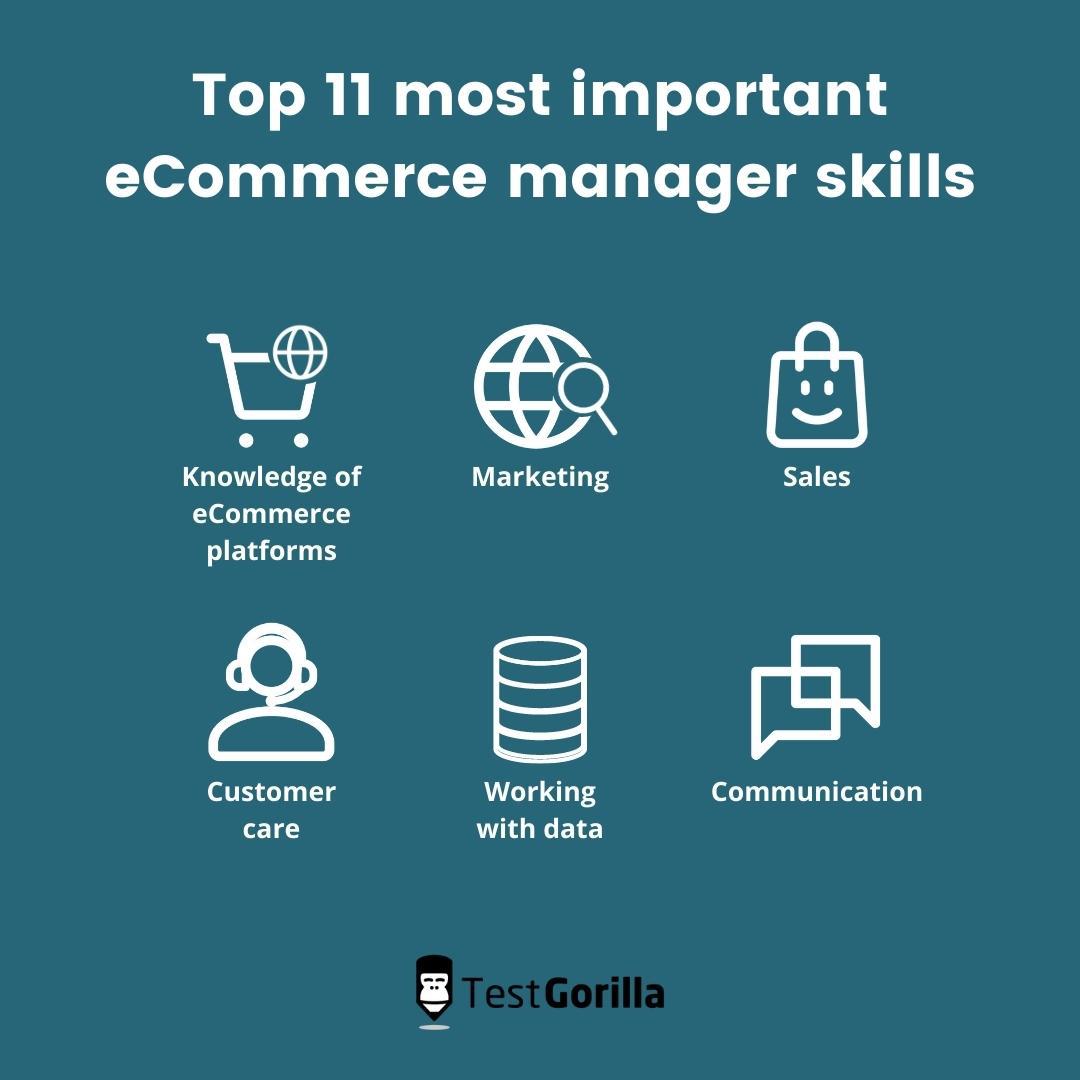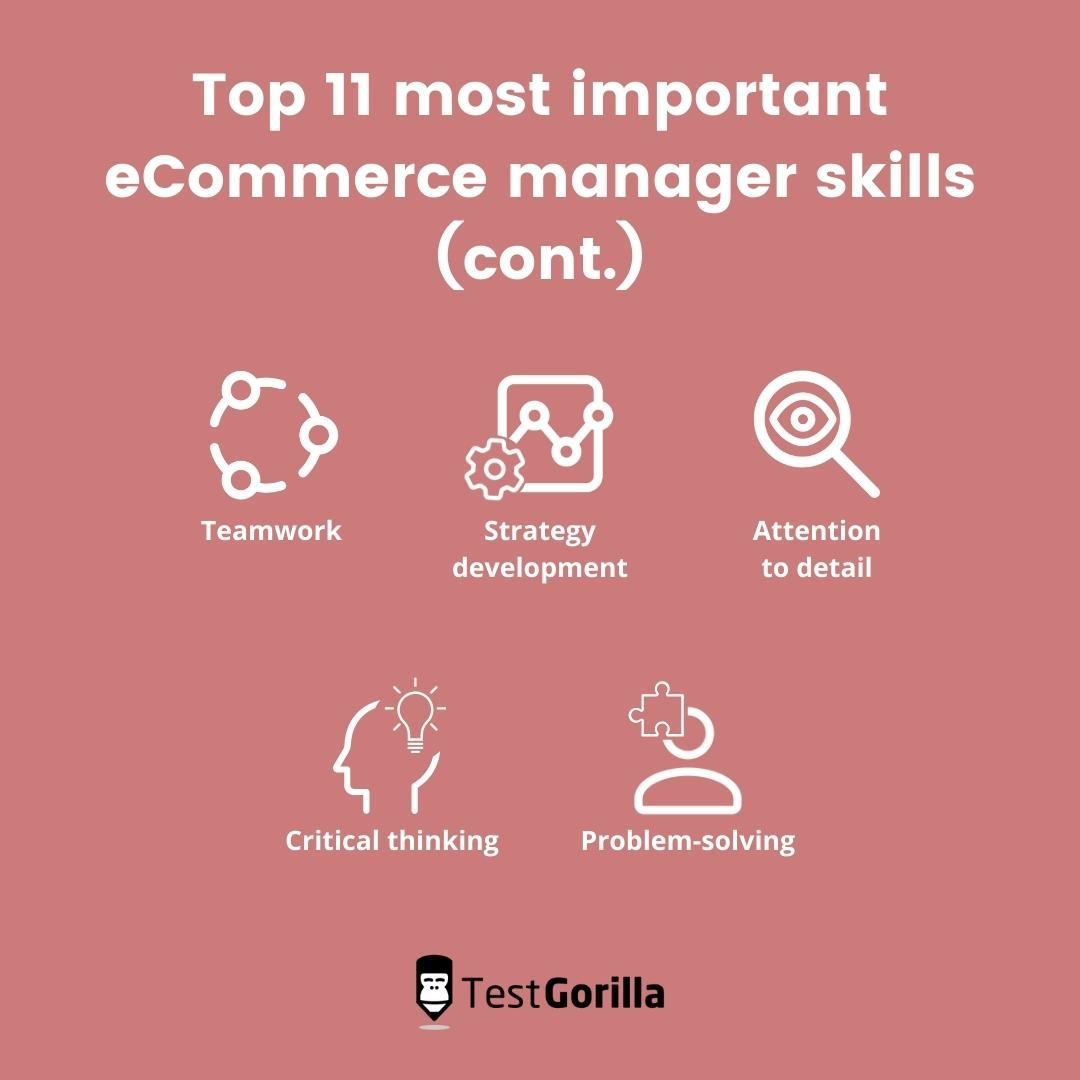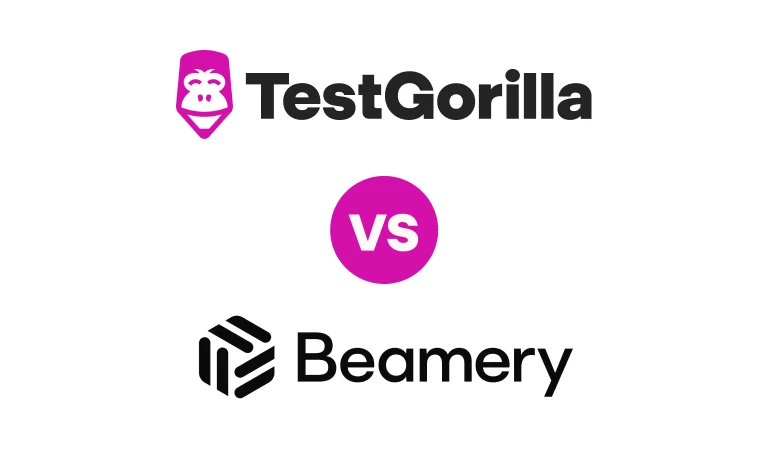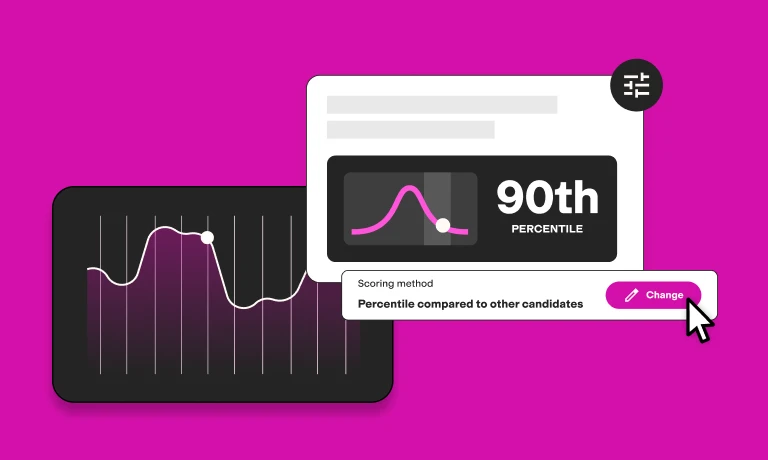E-commerce has been on the rise in the past few years, and there’s a good reason why.
During the pandemic, many people turned to online shopping to meet their daily needs, and retailers have since seen a massive surge in their overall sales.
The U.S. Department of Commerce reported that in 2021, total e-commerce sales amounted to around $870.8bn, which was an increase of 14.2% from 2020. Around 13.2% of total sales in the US were from e-commerce. Furthermore, the entire e-commerce industry is expected to grow by $11tn between 2021 and 2025.
And although retailers started investing in more warehouses to keep the products that they sell online in stock, it is the role of the e-commerce manager to successfully organize and manage the entire process.
E-commerce managers are responsible for managing online businesses on platforms such as Shopify and are accountable for a brand’s overall reach. The e-commerce manager is the one who creates a company’s online business strategy and is in charge of achieving its business goals through customer acquisition and customer retention.
Therefore, if you’re hiring for an e-commerce role, it is important to find an expert who can handle such tasks proficiently and leverage the online platform’s full range of capabilities.
TestGorilla can help you find the right candidate for the job via its Shopify test. Even though the test is predominantly created to assess candidates’ expertise in Shopify, you can also use it as a litmus test for all e-commerce managers to see whether they are a fit for the job at your organization.
With the above in mind, this article will go into more detail about e-commerce managers and their responsibilities. It will also list the most important skills an e-commerce manager should possess and give you tips on how to hire the perfect person for the job.
What is an e-commerce manager?
An e-commerce manager is in charge of a retail store’s online presence.
They handle the store’s website, marketing strategy, advertisements, social-media accounts, and daily tasks that make the store profitable.
Usually, the e-commerce manager has an entire plan on how to procure and sell items online. They put items up for sale, give out discount codes, and run email marketing campaigns. They are also in constant contact with the IT department, making changes to the website’s appearance to make it more visually appealing and user-friendly to help drive up sales.
Furthermore, the e-commerce manager is accountable for the company’s monetary transactions and stock procurement. They analyze the sales data and prepare reports that show how the online store is doing.
Their most important job, however, is to improve conversion rates to generate more traffic to your website and increase your overall sales.
What are the main responsibilities of an e-commerce manager?
Your e-commerce manager should already have a deep understanding of how online stores work and how to help them flourish as much as possible. Some of their main responsibilities are as follows.
1. Market research and data analysis
As mentioned, the main responsibility of the e-commerce manager is to increase conversion rates so that your store gets more visits and sells more products. Therefore, the e-commerce manager should have a good understanding of the market and be able to analyze trends and apply that information to the store’s overall marketing strategy to drive more sales.
2. SEO (Search engine optimization) and website design
While the e-commerce manager doesn’t need to be an IT specialist, they should be able to work with website platforms and give insights to the IT department on how to improve the visual aspects and usability of your website.
They should also have a thorough understanding of SEO to drive more website visits and convert them into sales.
3. Planning and execution of marketing strategies
The e-commerce manager is responsible for email marketing, promotional campaigns and giveaways, advertising, and planning the content for all social-media outlets used by your clients.
They also need to communicate these strategies to your team and define goals and objectives, potential risk factors, and budgets for all campaigns.
4. Customer acquisition and retention
The e-commerce manager should be able to direct how your company reaches out to people, draws them in, persuades them to buy your products, and then entices them to come back for more.
This requires them to build trust and help create a popular and reliable brand that provides its products and services, rain or shine.
5. Directing the e-commerce team
Finally, the e-commerce manager is responsible for the e-commerce team, which sorts, prepares, and sends your items to your clients.
The e-commerce manager needs to oversee this team and ensure everything runs smoothly so that your clients receive their packages on time.
The best insights on HR and recruitment, delivered to your inbox.
Biweekly updates. No spam. Unsubscribe any time.
Top 11 most important e-commerce manager skills
It’s essential for an e-commerce manager to have a certain skill set to run your online store.
By identifying these skills during the interview process, you will be able to understand if you’ve found the right person for the job.
1. Knowledge of e-commerce platforms
One skill any e-commerce manager should possess is a good understanding of e-commerce platforms like Shopify and Vendio. They need to know how to use these platforms to get the most out of them.
You don’t want to hire someone who is just now learning the ropes of these critical tools.
2. Marketing
Marketing is the actions e-commerce managers take to promote the buying and selling of products. This includes creating a content strategy using email campaigns and social-media outlets like Facebook Ads and Google Ads to advertise your products to a wider audience. To assess a candidate's ability to drive sales and customer acquisition, you can use a Growth Marketing test as part of your hiring process.
3. Sales
Sales are the focal point of any e-commerce store. Therefore, e-commerce managers should be familiar with marketplaces like Amazon and eBay that they can sell products on.
Having a good understanding of how to attract more customers is a key part of an e-commerce manager’s role. They need to know how to create email lists using pop-ups and upsell products to build up a loyal customer following for your store.
Then, you can start selling products to these customers and attract them with various coupons and promotions, further driving sales.
4. Customer care
It’s vital to build good relationships with your customers and create a loyalty program to keep them interested.
Having loyal customers who keep coming back to buy more of your products will greatly contribute to your online store’s long-term success. Therefore, the e-commerce manager needs to know how to acquire and retain customers so that they keep doing business with you.
5. Working with data
Working in e-commerce requires you to go through lots of data and analyze it meticulously.
The e-commerce manager needs to be aware of what is happening with sales, conversion rates, payments, and returns. All of this data needs to be sorted and analyzed so that the gathered information can be used to prepare better content strategies that enable you to make better use of your budget. Therefore, it’s crucial for e-commerce managers to be able to work with data.
6. Communication
Every e-commerce manager needs to be a good communicator with your clients and your team.
Most importantly, they must be honest and transparent with everyone. This is how they build trust so that people will be more willing to work with and buy from you.
7. Teamwork
Though the e-commerce manager is the driving force behind an online store, they still need to have a good working relationship with not only their own team members but everyone involved in the sales and logistics processes, both offline and online.
This includes warehouse personnel, drivers, IT specialists, and store clerks. The e-commerce manager would be unable to carry out their daily tasks without these employees, so they need to know how to work in a team.
8. Strategy development
To succeed in e-commerce, you need to create effective content and sales strategies and set long-term goals that help you achieve your company’s objectives.
An e-commerce manager should know how to develop strategies that take into account all aspects of e-commerce to drive sales up while limiting costs as much as possible.
9. Attention to detail
It’s essential for e-commerce managers to have good attention to detail so that they can complete a task without neglecting any of the various aspects involved in it.
E-commerce managers should ensure that tasks are completed as efficiently as possible while taking into account all the small details that make a product or service memorable for customers.
10. Critical thinking
A good e-commerce manager must constantly make informed decisions. Therefore, they need strong critical-thinking skills.
This will better prepare them to take in information and evaluate it to make the best possible choices that will keep customers happy and drive sales up.
11. Problem solving
With any business, there will always be issues that pop up and need to be dealt with.
The e-commerce manager needs to keep calm during difficult times and be able to delegate tasks to team members to deal with any problems quickly and efficiently.
How to hire the right e-commerce manager for your business
When hiring an e-commerce manager, make sure you choose the right person for the job. Follow these steps to ensure you pick the best candidate.
1. Write a detailed job description
You need to write a job description based on the above criteria that describes every aspect of the job.
You can then use the job description to measure whether or not someone is the right fit based on their past work experience and results on skills tests.
2. Use skills tests to assess applicants’ skills
You can use pre-employment skills tests to assess your candidates.
TestGorilla’s various skills tests can aid you in evaluating applicants’ abilities and give you a clearer picture of whether they are suitable for the job.
Specifically, TestGorilla’s Leadership & People Management test will help you hire leaders who can transform and grow your online business.
3. Conduct interviews with the best candidates
Once you determine which candidates to move ahead in the hiring process, it’s time to conduct interviews. You should prepare beforehand to ensure you have everything you need to assess your interviewees properly.
Be as transparent as possible during the interview process to ensure the person you’re interviewing feels relaxed. This way, you can measure how honest they are about their skills and past work experiences and make a clearer assessment of their character.
4. Do a job simulation or a trial
Next, you should do a trial run to make sure you are hiring the right person.
Invite the candidate over for a day on the job, and see how they handle things. The ones with hands-on experience will stand out immediately, showing you who is most qualified for the role.
5. Extend an offer to the best applicant
Once you have gone through the assessment and interview processes, you are ready to hire your e-commerce manager.
Send them an offer that describes everything you talked about with them – their job description, remuneration, and daily tasks.
And that’s it – you’re done. Congratulations, you have found the perfect e-commerce manager for your online store!
Hire the right e-commerce manager to help your business thrive
Overall, you want to identify the best candidate who not only has the right skills but also fits with your business.
If you follow the above guidelines, you are sure to find the right person to manage your online store. Once you get them on board, leave them to do their magic and watch your organization thrive with an e-commerce manager who knows the ropes of your online business and will help make it profitable.
With TestGorilla, you’ll find the recruitment process to be simpler, faster, and much more effective. Get started for free today and start making better hiring decisions, faster and bias-free.
You've scrolled this far
Why not try TestGorilla for free, and see what happens when you put skills first.





















